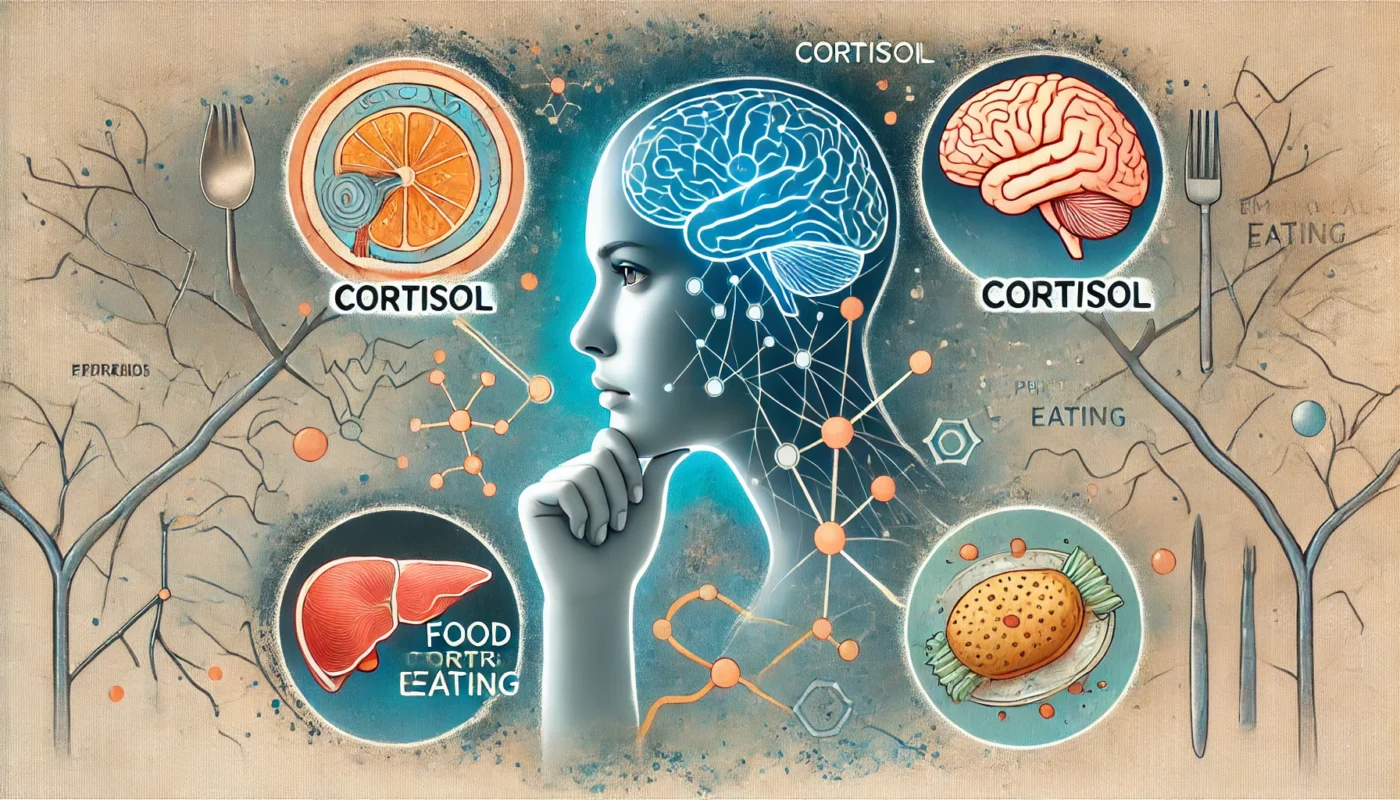In the intricate dance of hormones that regulate bodily functions, estrogen plays a pivotal role, particularly in appetite regulation. For those immersed in the world of fitness, health enthusiasts, or individuals managing medical conditions, understanding the interplay between estrogen and appetite can offer valuable insights into managing hunger and achieving health goals. This expanded exploration delves deeper into the mechanisms and practical applications surrounding this vital hormone.
You may also like: Best Veggies for Women’s Hormonal Health
Understanding Hunger Hormones
To appreciate estrogen’s role in appetite regulation, it’s crucial first to grasp the broader landscape of hunger hormones. The human body relies on a complex network of hormones to signal hunger and satiety, ensuring energy balance and nutrient intake. An in-depth understanding of these hormones can elucidate how estrogen fits into the bigger picture.
Key Players in Hunger Regulation
Among the key hormones influencing hunger are ghrelin, often dubbed the “hunger hormone,” which stimulates appetite, and leptin, which signals satiety and reduces food intake. Ghrelin is produced primarily in the stomach and signals the brain when it’s time to eat. Its levels typically rise before meals and decrease after eating, making it a crucial player in meal timing.
Leptin, on the other hand, is secreted by fat cells and helps regulate energy balance by inhibiting hunger. Unlike ghrelin, leptin’s role is to maintain body weight over the long term. It communicates with the brain about the body’s fat stores, signaling when it’s time to stop eating. However, estrogen, a primary female sex hormone, also intersects with these pathways, influencing appetite in nuanced ways. It can alter the sensitivity of leptin receptors, thereby modulating hunger and fullness signals.
The Interconnectedness of Hormones
Hunger hormones do not operate in isolation; they are part of an intricate hormonal network that includes insulin and cortisol. Insulin, produced by the pancreas, helps regulate blood sugar levels and can influence hunger signals. When insulin levels are unbalanced, it can lead to increased hunger and cravings.
Cortisol, known as the “stress hormone,” can also impact appetite. High stress levels can lead to increased cortisol production, which may result in heightened hunger and cravings for high-calorie foods. Estrogen can modulate the effects of these hormones, highlighting its multifaceted role in appetite regulation. By understanding these interconnections, individuals can better manage their appetite and dietary choices.
Does Estrogen Make You Hungry?
The question of whether estrogen directly makes you hungry is multifaceted. Research indicates that estrogen can affect appetite, but its impact varies depending on factors such as menstrual cycle phases, age, and overall health. Estrogen’s influence on appetite is not straightforward; it involves a complex interaction with other hormones and bodily systems.
Estrogen can increase the sensitivity of leptin receptors, potentially enhancing feelings of fullness. However, during certain phases of the menstrual cycle, fluctuations in estrogen levels can lead to increased hunger and cravings. This variability underscores the importance of understanding one’s own hormonal rhythms and how they impact appetite.

Estrogen and Appetite: The Science
The relationship between estrogen and appetite is not merely a matter of “more estrogen means more hunger” or vice versa. It involves a delicate balance that can vary across different life stages. By examining scientific studies and physiological mechanisms, we can gain a clearer picture of how estrogen affects appetite.
The Menstrual Cycle and Appetite
Estrogen levels fluctuate throughout the menstrual cycle, peaking during the follicular phase and dropping during the luteal phase. These fluctuations can influence appetite, with some studies suggesting that women may experience increased hunger and calorie intake during the luteal phase, when estrogen levels are lower. This period is often accompanied by changes in mood and energy levels, which can further impact eating behaviors.
During the follicular phase, higher estrogen levels can enhance insulin sensitivity and increase energy expenditure. This may lead to a decreased appetite and a preference for nutrient-dense foods. Understanding these patterns allows individuals to anticipate changes in appetite and make informed dietary choices.
Estrogen’s Role in the Brain
Estrogen acts on specific brain regions involved in appetite control, including the hypothalamus. It modulates the activity of neurons that produce neuropeptide Y (NPY) and agouti-related peptide (AgRP), both of which stimulate hunger. These neuropeptides play a crucial role in the body’s energy homeostasis, influencing both short-term and long-term appetite regulation.
Moreover, estrogen enhances the effects of leptin, potentially promoting satiety and reducing food intake. This interaction underscores the hormone’s dual role in both stimulating and curbing appetite, depending on the context. By influencing brain chemistry, estrogen can alter mood and cognitive function, which can also affect eating behaviors.
The Impact of Life Stages on Estrogen and Appetite
Life stages such as puberty, pregnancy, and menopause bring significant changes in estrogen levels, affecting appetite and metabolism. During puberty, rising estrogen levels contribute to growth and development, often accompanied by changes in appetite and food preferences.
Pregnancy involves dramatic increases in estrogen, which can impact hunger and cravings, necessitating careful dietary management to support fetal development and maternal health. Menopause, characterized by declining estrogen levels, is often associated with increased appetite and weight gain, highlighting the need for tailored dietary and lifestyle strategies.

Practical Implications for Health Enthusiasts
For fitness and health enthusiasts, understanding the role of estrogen in appetite regulation can inform dietary and exercise strategies to optimize health outcomes. By aligning lifestyle choices with hormonal fluctuations, individuals can enhance their well-being and achieve their health goals.
Tailoring Diet to Hormonal Fluctuations
Recognizing that hormonal fluctuations can affect appetite, individuals can tailor their dietary strategies accordingly. For instance, during phases of the menstrual cycle when hunger is heightened, focusing on nutrient-dense foods that promote satiety can help manage increased appetite. High-fiber foods, lean proteins, and healthy fats can provide sustained energy and reduce cravings.
Meal timing can also be adjusted to align with hormonal changes. Eating smaller, more frequent meals may help stabilize blood sugar levels and prevent overeating. Additionally, staying hydrated and avoiding processed foods can support hormone balance and appetite regulation.
Incorporating Holistic Approaches
Holistic approaches, such as mindfulness and stress reduction techniques, can also play a role in managing appetite. Stress and emotional factors can exacerbate hunger signals, and incorporating practices such as yoga or meditation may help mitigate these effects. Mindfulness can enhance awareness of hunger cues and promote a more intentional approach to eating.
Physical activity, particularly exercises that promote relaxation and reduce stress, can complement these approaches. Activities like walking, swimming, or tai chi can improve mood and reduce stress-related eating. By fostering a holistic approach to health, individuals can achieve a balanced relationship with food and their bodies.
Leveraging Technology for Hormonal Health
Advancements in technology offer new opportunities for managing hormonal health and appetite. Wearable devices and apps can track hormonal fluctuations, activity levels, and dietary intake, providing personalized insights into how lifestyle choices impact appetite and well-being.
Telemedicine and virtual consultations with healthcare professionals can offer tailored advice and support for managing hormonal health. By leveraging technology, individuals can gain a deeper understanding of their hormonal profiles and make informed decisions to optimize their health outcomes.
Estrogen, Appetite, and Health Conditions
Beyond general appetite regulation, estrogen’s influence extends to various health conditions, offering insights for medical patients managing specific health challenges. Understanding the role of estrogen in these contexts can inform treatment and lifestyle strategies.
Estrogen and Weight Management
For individuals managing weight-related conditions, understanding estrogen’s role in appetite can inform weight management strategies. During menopause, for example, declining estrogen levels are associated with weight gain and changes in fat distribution, emphasizing the need for tailored approaches to diet and exercise. Strength training and cardiovascular exercise can help maintain muscle mass and support metabolic health.
Dietary strategies that focus on whole foods and balanced macronutrients can mitigate the effects of hormonal changes on weight. Additionally, consulting with a healthcare provider or nutritionist can provide personalized guidance for managing weight in the context of hormonal shifts.
Estrogen and Recovery
For patients recovering from surgery or illness, hormone balance, including estrogen, can affect recovery outcomes. Ensuring adequate nutrition and managing appetite through holistic strategies can support the healing process. Nutrient-dense foods that provide essential vitamins and minerals can aid in tissue repair and immune function.
Monitoring hormonal changes during recovery can inform adjustments to diet and activity levels. Collaborating with healthcare professionals can ensure a comprehensive approach to recovery, addressing both physical and hormonal needs to optimize healing.
Estrogen and Metabolic Health
Estrogen plays a critical role in metabolic health, influencing glucose metabolism, insulin sensitivity, and lipid profiles. Imbalances in estrogen levels can contribute to metabolic disorders such as diabetes and cardiovascular disease. Understanding these connections can guide preventative strategies and interventions.
Lifestyle modifications, including diet and exercise, can support metabolic health and mitigate the impact of hormonal imbalances. Regular monitoring of blood glucose and lipid levels can provide insights into how hormonal fluctuations affect metabolic health, allowing for timely interventions.

Future Directions in Research
While our understanding of estrogen’s role in appetite regulation has advanced, ongoing research continues to uncover new insights and potential therapeutic applications. Future studies may further illuminate the complex interactions between hormones and appetite.
Personalized Approaches to Hormone Health
Future research may pave the way for personalized approaches to hormone health, allowing individuals to tailor their lifestyle and dietary choices to their unique hormonal profiles. This could revolutionize how we approach appetite regulation and overall health. Genetic testing and biomarker analysis may provide insights into individual hormonal responses and guide personalized interventions.
Innovations in hormone replacement therapies and supplements may offer new avenues for managing hormonal health. By integrating personalized medicine into hormonal health, individuals can achieve more effective and sustainable health outcomes.
Integrating Traditional and Alternative Therapies
Integrating traditional medical approaches with alternative therapies holds promise for optimizing hormone health. From herbal supplements to lifestyle interventions, a multifaceted approach could offer enhanced benefits for managing appetite and achieving health goals. Exploring the role of adaptogens, phytoestrogens, and other natural compounds may provide additional tools for hormone balance.
Collaborative research efforts that combine conventional and alternative methodologies can expand our understanding of hormone health. By embracing diverse perspectives, we can develop holistic approaches that address the complexities of hormonal regulation.
The Role of Environmental Factors
Environmental factors, including diet, stress, and exposure to endocrine disruptors, can impact hormonal health and appetite regulation. Future research may explore how these factors interact with estrogen and other hormones, providing insights into preventative strategies and interventions.
Public health initiatives that promote awareness of environmental influences on hormonal health can empower individuals to make informed choices. By addressing environmental factors, we can support healthier hormonal balance and improve overall well-being.
Conclusion
Understanding the role of estrogen in appetite regulation opens a window into the intricate interplay of hormones that govern our eating behaviors. For fitness enthusiasts, health advocates, and medical patients alike, this knowledge empowers individuals to make informed choices, tailoring their dietary and lifestyle strategies to align with their hormonal rhythms.
Incorporating both scientific insights and holistic approaches, we can navigate the complexities of appetite regulation, supporting our journey towards optimal health and well-being. By embracing a comprehensive approach that considers hormonal, lifestyle, and environmental factors, we can enhance our understanding of appetite regulation and achieve sustainable health outcomes.
Estrogen And Appetite, Hormonal Balance, Appetite Regulation, Menstrual Cycle, Hormones And Hunger, Health And Nutrition, Metabolism, Hormonal Health, Leptin And Ghrelin, Women’s Health, Fitness And Health, Menopause And Weight, Hormonal Fluctuations, Holistic Health, Diet And Hormones, Weight Management, Neuroendocrinology, Metabolic Health, Hormone Science, Appetite Control, Nutritional Science
Further Reading:
Estrogen Curbs Appetite In Same Way As The Hormone Leptin
Hormone Imbalance Treatment May Help Reduce Appetite
Estradiol and appetite: To eat or not to eat
Important Note: The information contained in this article is for general informational purposes only, and should not be construed as health or medical advice, nor is it intended to diagnose, prevent, treat, or cure any disease or health condition. Before embarking on any diet, fitness regimen, or program of nutritional supplementation, it is advisable to consult your healthcare professional in order to determine its safety and probable efficacy in terms of your individual state of health.
Regarding Nutritional Supplements Or Other Non-Prescription Health Products: If any nutritional supplements or other non-prescription health products are mentioned in the foregoing article, any claims or statements made about them have not been evaluated by the U.S. Food and Drug Administration, and such nutritional supplements or other health products are not intended to diagnose, treat, cure, or prevent any disease.

